Audio
Raymond Wong - Centre for Eye Research Australia
Ablequest by
2RPH3 seasons
18 April 2025
14 mins
A leading Australian eye researcher talks of his team's work in creating new hope for people with retinal damage.

This series of 15 minute programs from Sydney's Reading Radio 2RPH examines developments in assistive technology for people people living with a wide range of disabilities. It's presented by Barbara Sullivan, Marni Roper and Elaine Wziontek.
In this episode: There's new hope for people with vision loss caused by damage of the retina - such as retinitis pigmentosa and age-related macular degeneration. With an injection, it's possible vision may be restored through genetic stem cell therapy.
Associate Professor Raymond Wong (pictured on this page) from the Centre for Eye Research Australia (CERA) talks to Barbara Sullivan about his team's exciting and ground-breaking research in stem cell regeneration.
Original air date: 18.04.25
Elaine Wziontek 0:01
With information on the latest developments in assistive technology and initiatives from the studios of 2RPH in Sydney and around the country on the Radio Reading Network of Australia, we bring you Ablequest. Hello. I'm Elaine Wziontek.
Many millions of people worldwide suffer from vision loss through damage to the retina. To date, there is no preventative or repair treatment available for conditions such as retinitis pigmentosa or age related macular degeneration, where faulty or damaged photoreceptors lead to blindness or impaired vision, but hope is on the horizon - as we hear today from our guest, leading stem cell biologist, Associate Professor Raymond Wong, who is head of cellular reprogramming research at the Centre for Eye Research Australia or CERA in Melbourne.
Raymond and his team are working on a breakthrough approach to treatment which harnesses the regenerative power of the retina's own stem cells to prevent and reverse damage to the light sensing photoreceptors in the back of the eye to accelerate the pathway from the pre clinical stage to The market. Raymond has co founded with CERA, a gene therapy startup called Mirugen. Through Mirugen as a vehicle, the team at CERA aimed to switch on site for the millions of people living with incurable blindness. Barbara Sullivan spoke to Associate Professor Wong about this research effort at CERA.
Barbara Sullivan 1:43
Welcome to Ablequest, Ray, if I may call you that - we are so interested in having you on today on Ablequest, because many of our listeners live with vision loss. It's a daily challenge to lead an independent life with incurable blindness. So new research into alleviating, or in fact, reversing eye disease and damage is of great interest to us. So thank you for your time.
Raymond Wong 2:05
Thanks so much for having me.
Barbara Sullivan 2:07
As I understand it, to provide a vehicle for your groundbreaking research, which we will talk about. You've co-founded a startup, Mirogen, at CERA - the Centre for Eye Research Australia. But before we talk about Mirugen and your progress with that, what are the particular eye conditions you're addressing?
Raymond Wong 2:24
Certainly. So the problem we're addressing is blindness associated with the degeneration of the photoreceptors. So these are the light sensing cell at the back of our eye, in the retina, and that specifically is a common hallmark for many different form of blindness, including retinitis pigmentosa, age-related macular degeneration, thyroid guide disease and many more forms of blindness.
Barbara Sullivan 2:50
What exactly causes the blindness in these cases?
Raymond Wong 2:54
So the primary indication of our research is retinitis pigmentosa, and in this case it is this is caused by genetic mutations that resulted in the loss of photoreceptors and that ultimately lead to blindness. And unfortunately, once the photoreceptor cells are lost, there's really no cure for blindness at the moment.
Barbara Sullivan 3:18
And in the case of age related macular degeneration, which is in this category, I suppose that's more about damage, isn't it? Rather than genetic loss.
Raymond Wong 3:29
Genetics, it's also a contributing factor. But in age-related macular degeneration, the reason is more complex, but ultimately there is a degeneration of the photoreceptor that cause patient impairment.
Barbara Sullivan 3:43
And approximately how many people suffer from these conditions?
Raymond Wong 3:47
In the case of retinitis pigmentosa, we know there are more than one million people worldwide that is affected by retinitis pigmentosa - but overall, in general, when we talk about photoreceptor degeneration, affecting the many different form blindness that I mentioned, collectively, that's more than 190 million people worldwide, so a substantial number of patients with vision impairment.
Barbara Sullivan 4:13
So you touched on your research - can you explain the main focus of it?
Raymond Wong 4:17
Yes, I'll be very happy to do that. Our research is developing a gene therapy to stimulate the retina to regenerate new photoreceptors to treat blindness, and this will be in the form of an injection. We're using viruses to carry a set of reprogramming genes where we can inject them into the eye, targeting a specific stem cells within the retina called the Muller glial cells, and using our... using these genes to reprogram them, we can turn them into forming new photoreceptors to effectively restore vision in the patient.
Now the Muller glial cells are really interesting. And in the retina, it turns out that in lower organisms such as fish and chicken, when the when the retina is injured, the Muller glial cells can regenerate the whole retina in effectively repair vision. So it's a remarkable regenerative ability, but this regenerative ability is lost in higher mammals, and we think that our gene therapy is a novel approach to unlock this regenerative ability in the retina to treat blindness.
Barbara Sullivan 5:31
You mentioned injecting the eye... at the moment with certain conditions people need to such as macular degeneration, people need to have injections every couple of months. You're talking here about a kind of single injection.
Raymond Wong 5:46
That's right, yeah, we're looking at a single injection that can reprogram the stem cells into forming photoreceptors.
Barbara Sullivan 5:54
This is very encompassing, this research. Do you break that down into particular projects that you work on sequentially or in parallel? Can you work in parallel in order to speed it up?
Raymond Wong 6:06
Oh, yes. So we have some projects that are working in sequential order. Some of them are in parallel to accelerate the progress. So for example, we're working on a number of projects. We're working on developing a human gene Atlas. So this is really a map that allows us to understand all the genes that are and the genetic signals that's happening in human retina cell types. And the reason to do that is that gives us a good idea of what genes we need to switch on in order to turn the stem cells into photoreceptors.
We're also working on optimising the cell reprogramming technology that allow us to stimulate retina regeneration. And in parallel, we're also working on improving the gene delivery method to the retina using this kind of viruses called [?Adenosoci] viruses, right?
Barbara Sullivan 7:00
And you talk about, we, you've got a team working for you.
Raymond Wong 7:04
That's right, yeah. So I am very fortunate to have great collaborators and mentor and my team members at the Centre for Eye Research Australia. So you know, we have tremendous support from the Centre for Eye Research Australia in particular. Our Managing Director, Professor Keith Martin, is very supportive of the project. He's also the co-founder of the spinoff company Mirogen, that is focusing on commercialising the retina gene therapy. My lab has some really incredibly talented researchers - in particular, Dr Daniel Urrutia, my postdoc fellows is driving a lot of the research that is happening in the lab right now.
And we're also leveraging the expertise in Centre for Eye Research Australia, both in terms of basic science and also the clinicians. We have a fantastic collaboration with many of them, and here we also have a dedicated of ophthalmic clinical trial centres, at [?Sherulia], and a strong partnership with the Royal Victorian Eye Hospital. So, you know, we're very fortunate to have this really, really good research environment that enable our work to happen.
Barbara Sullivan 8:15
That's really the big guns, isn't it? I mean, it's... fantastic. And how does the startup that you talked about, Mirugen, fit into the picture. What is its particular purpose?
Raymond Wong 8:16
So Mirugen is a startup biotech company that's being incubated at the Centre for Eye Research Australia. The focus of this is to develop this gene therapy to stimulate photoreceptor regeneration. In my case, I would like to translate my research to help patients with vision impairment. That's my primary goal. And the way I see it is commercialisation is the essential pathway to bring our research funding, research findings in the lab to the clinic. And with Mirugen, we're looking to accelerate our work so this can happen faster with this commercialisation pathway. So we're really excited to come on this journey with Mirogen.
Barbara Sullivan 9:07
It's an interesting name. Does it have a particular meaning,Mirugen?
Raymond Wong 9:11
I'm glad you asked. (THEY LAUGH) We've put some thoughts into the name. So Miru, it's the Japanese word for vision or view, and Gen is gene therapy. So this is really paying homage to the Japanese discovery of the cell reprogramming technology, and in particular by Professor Shinya Yamanaka, who is really a pioneer in this field. And...he won the Nobel Prize for discovering cell reprogramming technology to generate stem cells. So he is also my scientific hero. This is in many ways related to this early reprogramming technology.
Barbara Sullivan 9:49
Now you've recently had a funding coup for Mirugen, something of a Christmas present. I believe it happened in December. Tell us about that.
Raymond Wong 9:57
Oh yeah, that's the best Christmas present we've got. Okay, I'm really happy to say that Mirugen was awarded... funding from the curator grant, and that's, that's a $1.92 million of funding. So this is a federal funding under the Medical Research Future Fund that is supporting biotech companies to accelerate translational research. So we're really excited to be awarded this prestigious funding - and that enable us to really advance our research.
Barbara Sullivan 10:30
So when you get funding like that, almost $2 million which is substantial, I'm sure there are conditions placed on that, other milestones that you have to meet - for example, with your projects that you outlined before?
Raymond Wong 10:43
Yes, absolutely. So with Mirugen, we've set up a development plan where we have to hit certain milestone in order to continue to get the funding. The Curator Plus program itself is actually a $5 million program, so there's an opportunity to get more if we hit the milestone. But this is all very milestone driven and looking to generate a very favorable outcome, to develop and advance our research to become a drug treatment. Yes,
Barbara Sullivan 11:12
Well, when you marry what you're doing with the numbers of people that are going to have a positive impact, if you've got a positive outcome, I'm sure that there will be a continued flow of funding. Do you feel confident it'll be sustained?
Raymond Wong 11:26
Well, so far, we're we are fortunate to be supported by, you know, various funding, and you're absolutely right. You know, sustain the funding is critical for our research to happen. And you know, in the past, we've been supported by National Health and Medical Research Council, the current Medical Research Future Fund, and also retina, Australia, national stem cell Foundation of Australia, Australia, vision research and many other forms of philanthropic funding. We're all very grateful to this to get us to this point, and we are really excited about the potential of our research.
So in many ways, we must continue so there will be ongoing fundraising and appropriate time point. But you know, I think there is tremendous potential with our research that I am personally very excited to advance this progress.
Barbara Sullivan 12:17
Well, it's not something you'll solve in a in a short time frame, even though you're accelerating your pre clinical work to get it to commercialisation. So what's your overall timeframe? Do you think and what are the various stages ahead of you?
Raymond Wong 12:30
So our research is still at the early stages. We're at the pre-clinical stages, and that means we are working through optimisation of manufacturing efficacy and also safety, and those are really important before we bring it to clinical trial for, first in human testing in the patient, and we see that there will be a few years ahead of us before we head to clinical trial - but we're just really, really excited about the progress - we have certainly seen the work being accelerated in the past few years, and there's also a lot of new technologies coming in, into the current area, so we have to work hard.
Barbara Sullivan 13:13
Yes, now, if anyone listening wants to find out more, presumably, the CERA newsletter that seems to come out every month often highlights this, and people can go to the website and keep track of where you are.
Raymond Wong 13:25
Yeah, so the CERA website would be possibly the best way to keep track of it. There will be regular news release. We do have a regular newsletter that we send out to the general public, and there's a way to sign up for the newsletter online, through our CERA website. I believe we're also looking to publish our research, so that's also a good indication of where things are.
Barbara Sullivan 13:48
Well, it's extremely interesting, and I wish you the very best. I'd love to check in with you again before too long, Raymond to see how you're going.
Raymond Wong 13:55
Thank you so much for having me.
Barbara Sullivan 13:57
I have been speaking with Associate Professor Raymond Wong of the Centre for Eye Research Australia at the University of Melbourne - for more information, CERA's website is C, E, R, A, dot org, dot A,U.
Elaine Wziontek 14:15
You've just been listening to Ablequest - a program that looks at developments in assistive technology and initiatives. From Barbara Sullivan and Elaine Wziontek, thank you for listening and goodbye till next program.
Continue listening

Blind Sports Australia CEO Matt Clayton speaks about its work with blind and vision impaired athletes across 21 sports.
Matt Clayton - Blind Sports Australia
Ablequest by 2RPH
5/5/2023
•13 mins
Audio

Vivid, Sydney's celebration of creativity, seen from a disability access focus by its director.
Gill Minervini - Vivid
Ablequest by 2RPH
19/5/2023
•14 mins
Audio

This program discusses dance movement therapy and how it works - featuring Cecilia King of the Dance Therapy Association.
Cecilia King - Dance Therapy
Ablequest by 2RPH
14 mins
Audio

What are the challenges of providing audio description on Oz TV? Hear Lauren Henley, Aust Federation of Disability Organisations.
Lauren Henley - Audio Description
Ablequest by 2RPH
16/6/2023
•14 mins
Audio

In Part 1 of a 2RPH interview, assistive tech expert David Woodbridge explores latest innovations to make everyday life easier.
David Woodbridge - Tech Update Part 1
Ablequest by 2RPH
30/6/2023
•14 mins
Audio

Features Robert Duff-Silsby of Luddi, Perth company developing assistive devices for all people and bodies.
Robert Duff-Silsby - Sexual Wellbeing
Ablequest by 2RPH
13 mins
Audio

In Part 2 of this conversation with 2RPH's Ablequest, expert David Woodbridge reviews latest assistive technologies.
David Woodbridge - Tech Update Part 2
Ablequest by 2RPH
28/7/2023
•14 mins
Audio

Matt Clayton of Blind Sports Australia and the Oz team's Chef de Mission, discusses the forthcoming World Blind Games in the UK.
Matt Clayton - World Blind Games
Ablequest by 2RPH
11/8/2023
•13 mins
Audio

Prof Kim Marriott of the Monash Assistive Technology and Society Centre, talks about the purpose and work of the Centre.
Kim Marriott - Monash Assistive Technology and Society Centre
Ablequest by 2RPH
25/8/2023
•13 mins
Audio

Ablequest features an interview with Serena Ovens, new CEO of Assistive Technology Supplies Australia or "ATSA".
Serena Ovens - Assistive Technology Supplies Australia
Ablequest by 2RPH
14 mins
Audio

Part 1 of an interview on the voice-activated app, Bindi Maps.
Anna Wright - Bindi Maps (Part 1)
Ablequest by 2RPH
14 mins
Audio

This is Part 2 of an interview with Dr Anna Wright, explaining how Bindi Maps works.
Anna Wright - Bindi Maps (Part 2)
Ablequest by 2RPH
14 mins
Audio

Artist Ebony Wightman of disability-led We Are Studios talks about art and challenge.
Ebony Wightman - We Are Studios
Ablequest by 2RPH
20/10/2023
•13 mins
Audio

Prof. Leeanne Carey discusses the SENSe program, her team's world-first therapy to help stroke survivors.
Leeanne Carey - SENSe Therapy
Ablequest by 2RPH
2/11/2023
•13 mins
Audio

Youthworks Accessibility Minister Bec Baines talks of making church accessible to young people with disabilities.
Bec Baines - Youth and Worship
Ablequest by 2RPH
16/11/2023
•14 mins
Audio

Nikki Hind, Australia's first blind fashion designer, discusses her work.
Nikki Hind: Blind Grit
Ablequest by 2RPH
1 December 2023
•14 mins
Audio

Dr Dimity Williams, family GP, recommends spending more time in nature - and a "green hour" each day.
Green Hour: Dr Dimity Williams
Ablequest by 2RPH
5 December 2023
•14 mins
Audio

Imagine sitting in a wheelchair for hours, being unable to move your fingers or arm to do simple things like pick up a glass.
Konstanze Hager - Bateo
Ablequest by 2RPH
Konstanze Hager - Bateo
•14 mins
Audio

Action Audio is a new language being created to transcend sport.
Machar Reid - Action Audio
Ablequest by 2RPH
Machar Reid - Action Audio
•14 mins
Audio

What a difference one person with experience, passion and energy can make to many lives.
Julie Ross-Edwards - Head High
Ablequest by 2RPH
Julie Ross-Edwards - Head High
•14 mins
Audio

Driver educator outlines what's needed for a person with disability to get a driver's licence.
Ronak Shah: on-road driving education
Ablequest by 2RPH
12 January 2024
•14 mins
Audio

Vision Australia's Christo Sarantakis talks of his life, blindness and assistive tech changes.
Christo Sarantakis of Vision Australia
Ablequest by 2RPH
26 January 2024
•14 mins
Audio

Introducing Australia's first pictureless feature film, TOUCH, showing in Sydney.
Majella Knobel: "Touch" - open air movie
Ablequest by 2RPH
9 February 2024
•14 mins
Audio

An expert discusses the use of horticultural therapy for people with disabilities.
Steven Wells: horticultural therapy
Ablequest by 2RPH
23 February 2024
•14 mins
Audio

Features articles on latest blind-assistive tech including a new bus app and smart ear buds.
Assistive tech news catchup
Ablequest by 2RPH
8 March 2024
•14 mins
Audio

Features an innovative hospitality industry training program for people with disabilities.
Saraya O'Connell - Hotel Etico Independence Program
Ablequest by 2RPH
22 March 2024
•14 mins
Audio

Guests discuss the Obi robotic dining assistant for people with upper arm disabilities.
Hugh Kingley and Rachel Dekkar: Obi
Ablequest by 2RPH
19 April 2024
•14 mins
Audio

A spy-themed computer program tackles the mystery of social encounters - outlined by its company's CEO.
Kathleen Davey - Social Science Translated
Ablequest by 2RPH
3 May 2024
•14 mins
Audio

A Sydney organisation delivers creative arts and life skills to people with disabilities.
ChoppA Green - Studio Artes
Ablequest by 2RPH
17 May 2024
•14 mins
Audio

An award-winning Central Coast NSW disability service shares its successful strategies.
Lonestar Makoni - Breaking Barriers Disability Services
Ablequest by 2RPH
31 May 2024
•14 mins
Audio

Part 1 of a conversation with an Australian neuroscience research pioneer about benefits of music in brain injury recovery.
Professor Sarah Wilson (part 1)
Ablequest by 2RPH
14 June 2024
•14 mins
Audio

Part 2 of a conversation with a leading neuroscientist of benefits of music in brain injury recovery.
Professor Sarah Wilson (part 2)
Ablequest by 2RPH
28 June 2024
•14 mins
Audio

A CEO talks about his company's award-winning assistive physical therapy device.
Justin Keenan - LusioMate
Ablequest by 2RPH
12 July 2024
•14 mins
Audio

Information about a program teaching good cyber-security practices to make daily life safer.
Jess Wilson: Be Connected
Ablequest by 2RPH
26 July 2024
•14 mins
Audio

A veteran print disability broadcaster with macular degeneration shares her experiences.
Teresa Plane - 2RPH
Ablequest by 2RPH
9 August 2024
•14 mins
Audio

The founder of a blind-assistive technology company shares latest developments.
Peter Ford - Control Bionics (part 1)
Ablequest by 2RPH
6 September 2024
•14 mins
Audio

Part 2 of an interview with the head of an innovative blind-assistive technology company.
Peter Ford - Control Bionics (part 2)
Ablequest by 2RPH
20 September 2024
•13 mins
Audio

Looks at a project to better inform refugee and migrant women on AI.
Good Things - Jess Wilson
Ablequest by 2RPH
4 October 2024
•14 mins
Audio

An expert with lived experience corrects some widespread misconceptions about stuttering.
Dale Williams - Stuttering Awareness Day
Ablequest by 2RPH
18 October 2024
•14 mins
Audio

An inventor discusses his an innovative cane tip to help people with blindness or low vision.
Peter Rickards - Sensaball
Ablequest by 2RPH
15 November 2024
•13 mins
Audio

Part 1 of an interview with an Australian expert on low-vision-assistive technology, on AI and other developments.
David Woodbridge (part 1)
Ablequest by 2RPH
29/11/2024
•14 mins
Audio

Conclusion of an interview with a leading Australian expert on blind-assistive technology.
David Woodbridge (part 2)
Ablequest by 2RPH
13 December 2024
•14 mins
Audio

Looks at the leading stroke treatment work of the Royal Rehabilitation Hospital, Ryde NSW.
Jason Redhead and Graham Cooper of Royal Rehab Ryde
Ablequest by 2RPH
10 January 2025
•14 mins
Audio

An innovative social media platform aims to address isolation and loneliness in the disability community.
Steve Bear - Alvie
Ablequest by 2RPH
7 February 2025
•12 mins
Audio

Australia's largest provider of Auslan sign services outlines its important work.
Brett Casey - Deaf Connect
Ablequest by 2RPH
21 February 2025
•14 mins
Audio

Looks at an Australian organisation's work at helping men seek help and build self-awareness.
Tommy Herschell - Find Ya Feet
Ablequest by 2RPH
7 March 2025
•14 mins
Audio

A speech pathoplogist discusses her work with young people's complex communication needs.
Denise West - Scope
Ablequest by 2RPH
21 March 2025
•14 mins
Audio

A vision-impaired disability rights advocate talks of her work and learning podcast skills.
Freya Wolf
Ablequest by 2RPH
4 April 2025
•14 mins
Audio

A leading Australian eye researcher talks of his team's work in creating new hope for people with retinal damage.
Raymond Wong - Centre for Eye Research Australia
Ablequest by 2RPH
18 April 2025
•14 mins
Audio

A wheelchair-using business owner, facilitator and car rally driver shares experiences and insights.
Mel Harrison - Sitting Low, Reaching High
Ablequest by 2RPH
2 May 2025
•13 mins
Audio
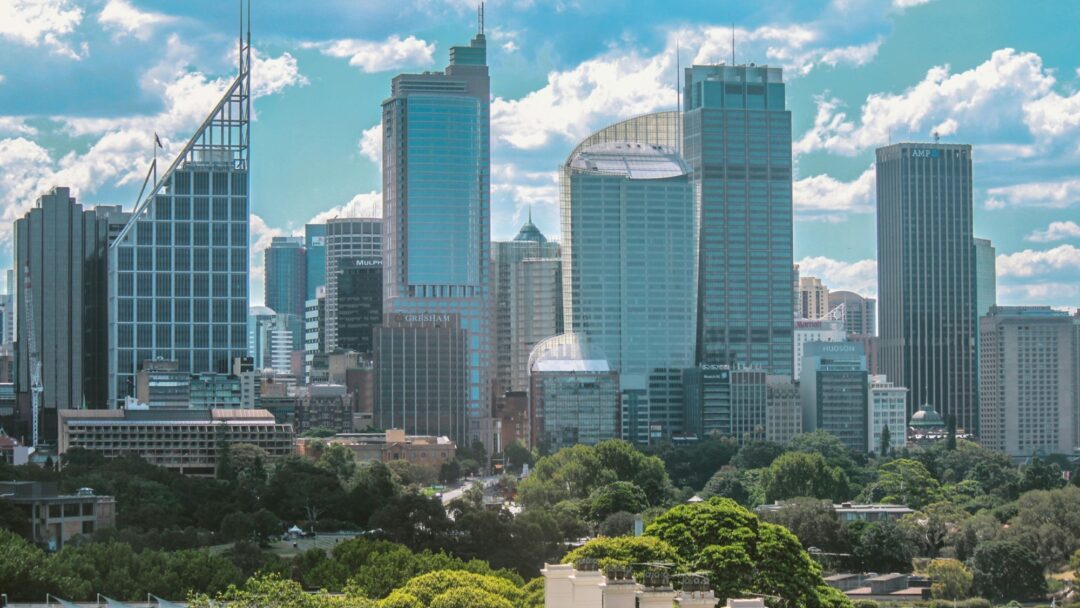
Disability Pride Month in July promotes awareness about people with disability and also celebrates individuals with disability.
Hannah Solomons - Sydney Disability Pride
Ablequest by 2RPH
Hannah Solomons - Sydney Disability Pride
•14 mins
Audio
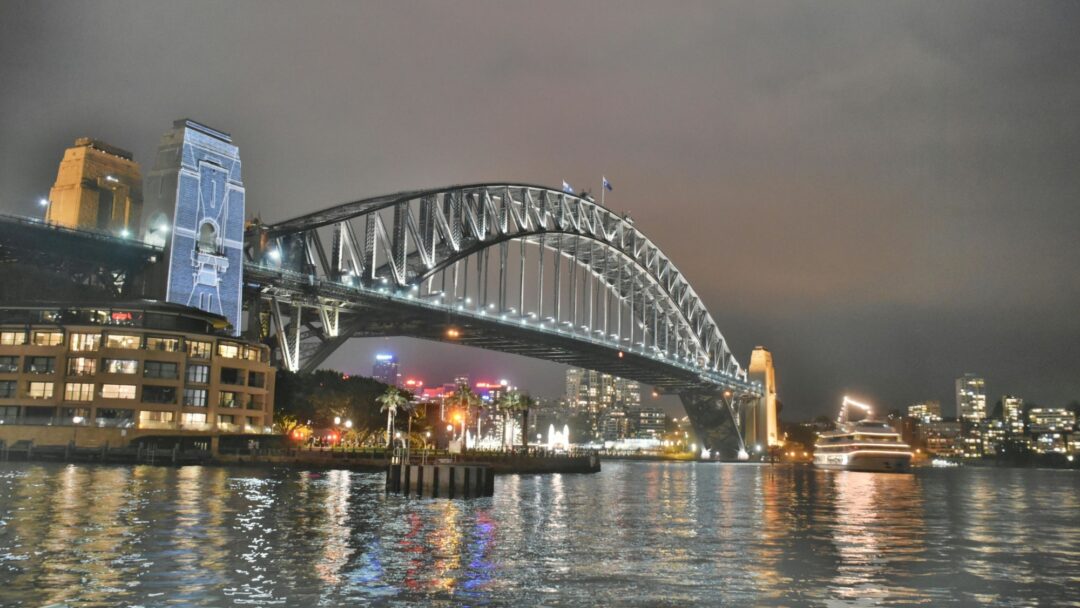
Deb Roach is a three-time pole dancing world champion yet she has only one arm.
Deb Roach
Ablequest by 2RPH
Deb Roach
•13 mins
Audio
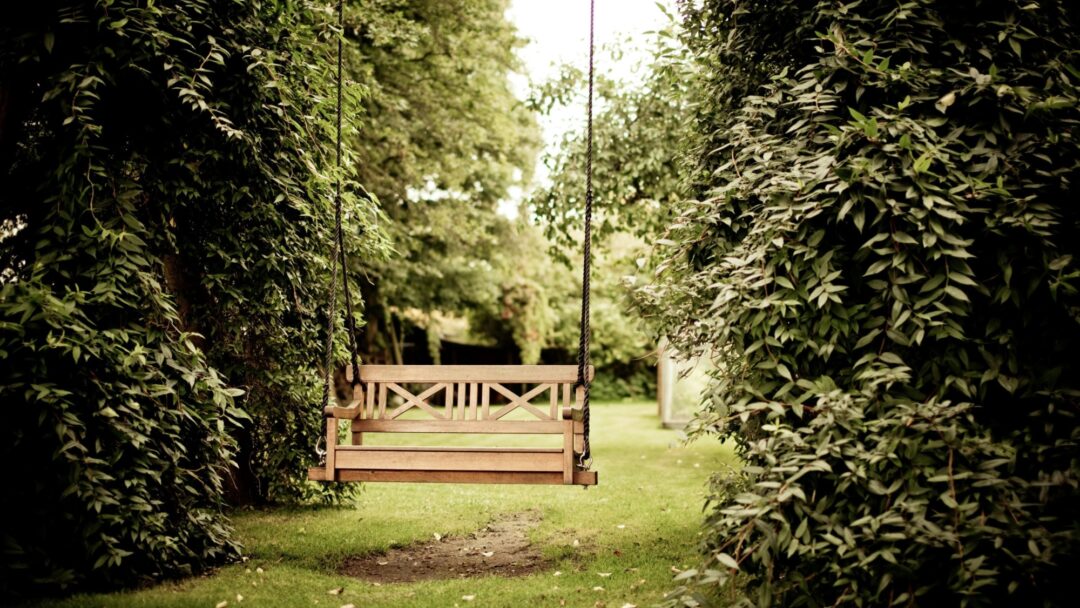
Being in nature is good for you whether it is being in the garden or walking along the beach.
Kayte Kitchen - Admirari Nature Therapy
Ablequest by 2RPH
Kayte Kitchen - Admirari Nature Therapy
•14 mins
Audio

Music can evoke emotions that bring back memories and the same is true for people living with dementia.
Zara Thompson - Music Therapy
Ablequest by 2RPH
Zara Thompson - Music Therapy
•14 mins
Audio
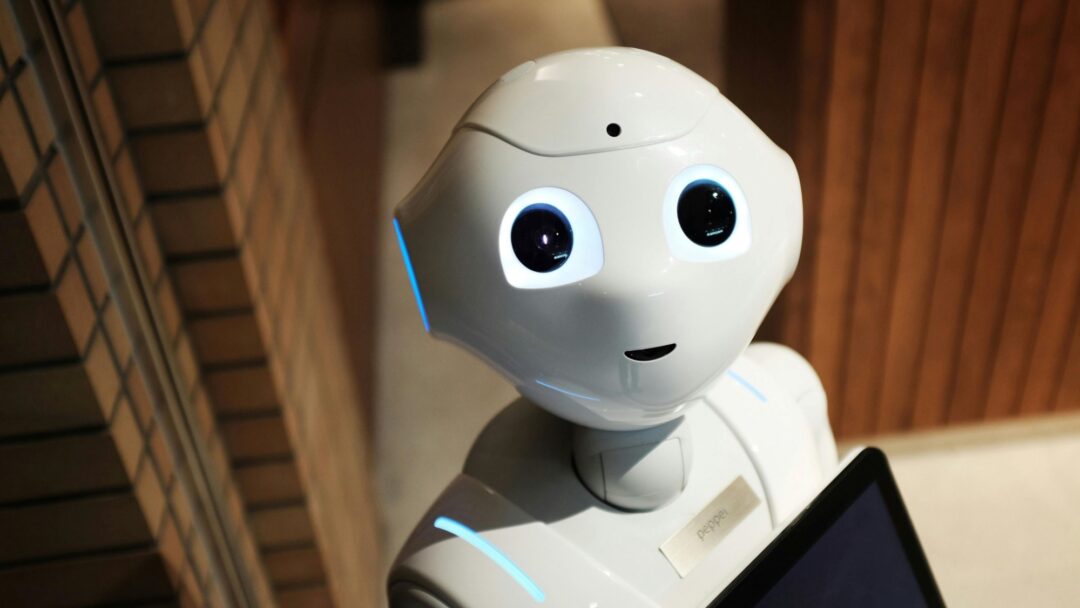
Laura Boccanfuso is founder and CEO of Van Robotics, a social robotics company based in South Carolina in the United States.
Laura Boccanfuso - Van Robotics
Ablequest by 2RPH
Laura Boccanfuso - Van Robotics
•14 mins
Audio

Two years ago Maggie O'Connell, in her mid 20's never had a full time job.
Maggie O'Connell - AFP
Ablequest by 2RPH
Maggie O'Connell - AFP
•14 mins
Audio
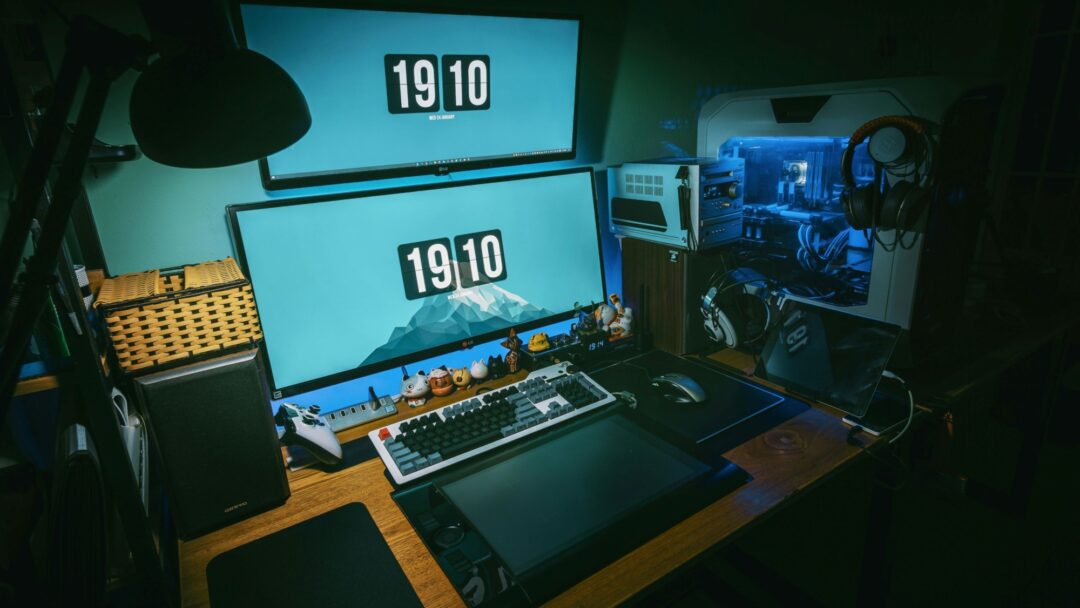
Julie Ross-Edwards, founder of Head High Disability Services, returns to Ablequest to speak more about Head High's philosophy and special approach.
Head High (Update)
Ablequest by 2RPH
Head High (Update)
•13 mins
Audio

David Woodbridge, an expert in assistive technology for people with no or low vision, is a regular guest on Ablequest.
David Woodbridge
Ablequest by 2RPH
David Woodbridge
•14 mins
Audio

Pete Horsley is the Founder of Remarkable, a global start up and initiative of the Cerebral Palsy Alliance.
Pete Horsley - Remarkable Disability Tech Summit
Ablequest by 2RPH
Pete Horsley - Remarkable Disability Tech Summit
•14 mins
Audio